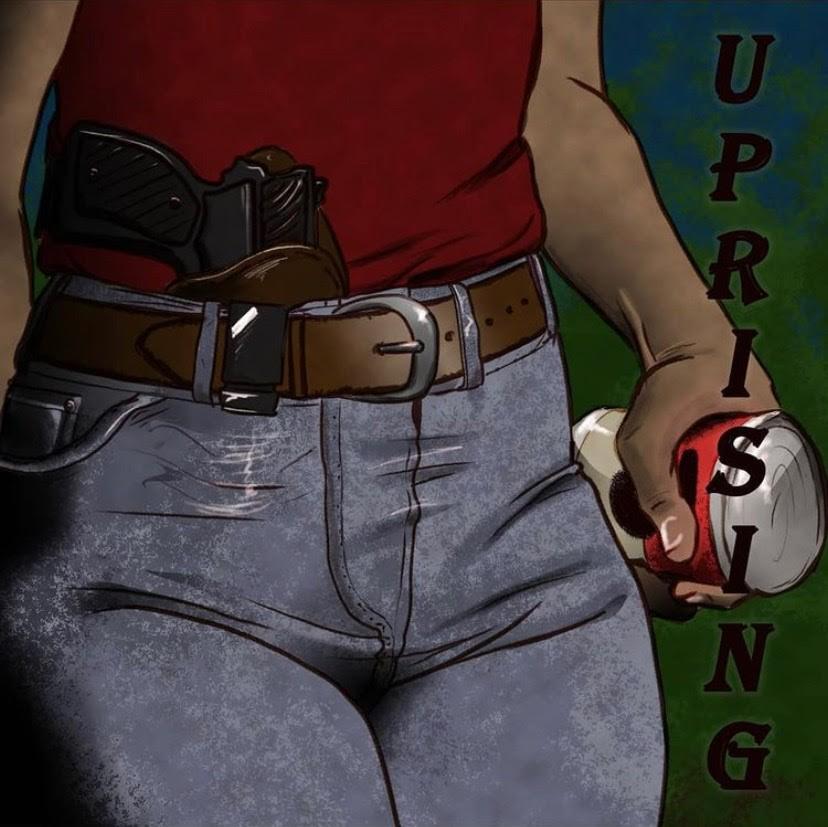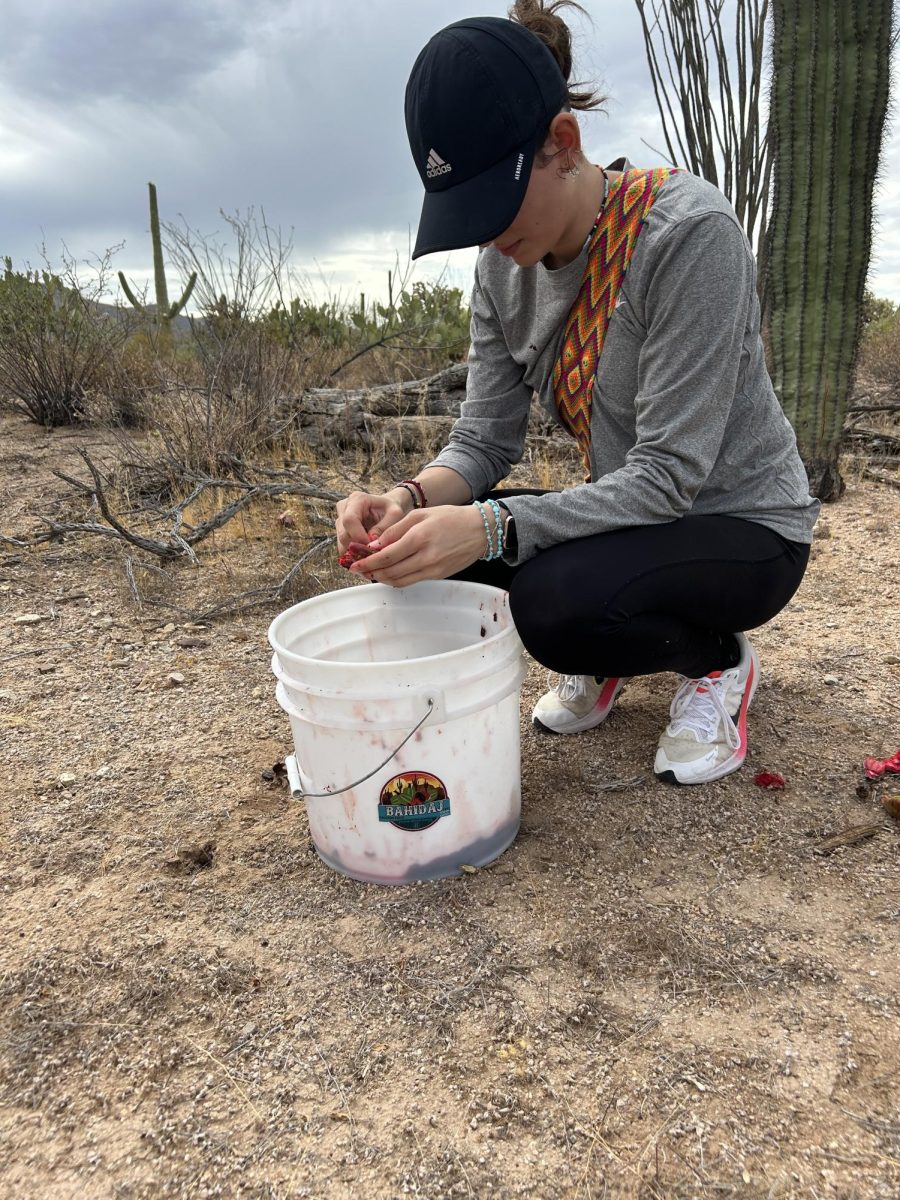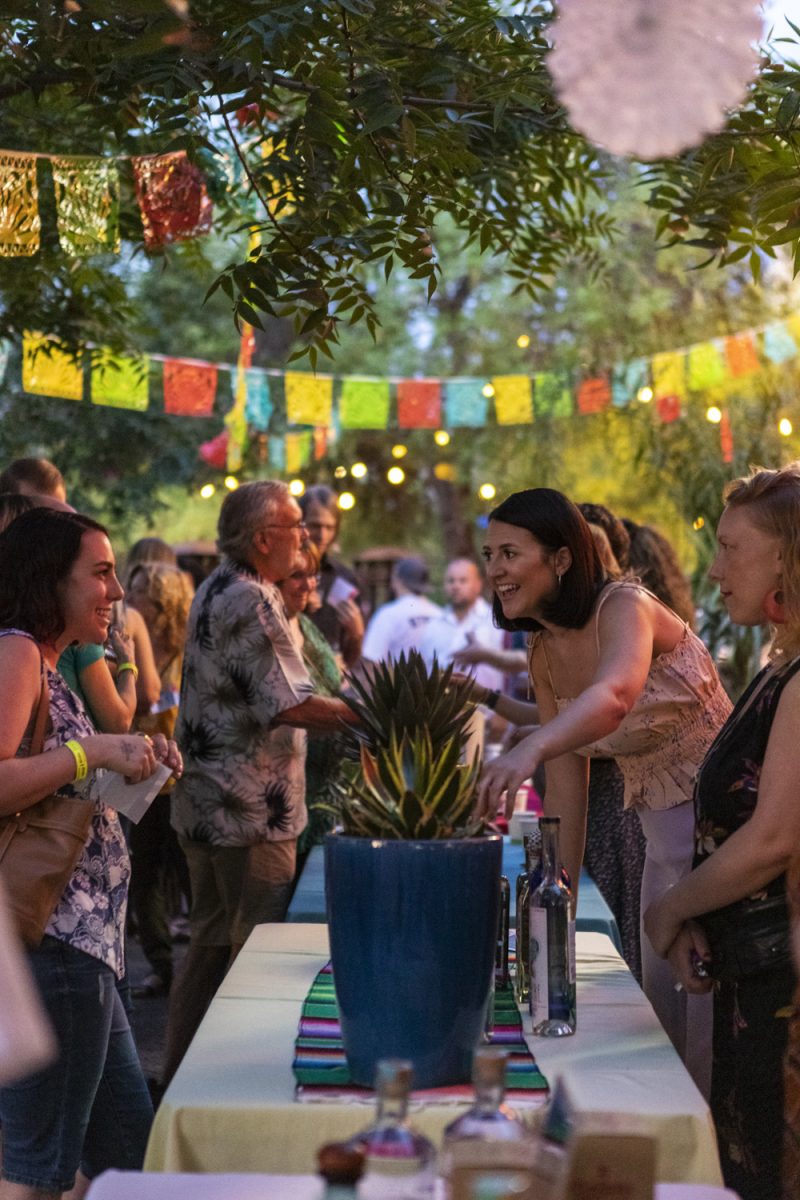Black Lives Matter Tucson is asking for submissions from local Black creators for “Uprising,” their upcoming zine. They will be accepting art submissions until Feb. 1, with plans to launch the zine in March.
Stevie Rose was one of the featured creators and team members that was putting together this zine, a do-it-yourself magazine that contains unique texts and images. For Rose, the idea behind Uprising was to explore another facet of activism.
“Part of our resistance is our creativity and our art. It always has been, especially as Black people,” Rose said.
RELATED: Art activism: Carnegiea Literary Magazine opens charity print shop for No More Deaths
DiAn Dviation, another team member for Uprising and a featured artist, added that when Black people and Black activism are seen in the media, it tends to be a somber topic.
“Very often when you hear ‘Blackness’ or ‘BLM’ in the media, it’s some sad thing. I don’t as often see us as being uplifted for being talented, for being artists, and writers, and singers and just something other than being murdered,” Dviation said. “As we spoke about what type of things we wanted to bring to the forefront this year, one was what if we could do some type of thing to give to artists.”
Uprising asks Black creatives to design their own interpretation of the phrase through whatever medium they choose.
Lotus Spencer, a third-year University of Arizona student majoring in Africana studies and minoring in Spanish, wrote a poem for their depiction of Uprising. Taking inspiration from their favorite poem, “The Rose That Grew From Concrete” by Tupac Shakur, and the notion of plant life as it pertains to the human experience, Spencer explained how these ideas connected to Uprising.
“I’ve always felt that the concept of Uprising itself doesn’t occur without that foundation of those roots because you first have to rise above something, and within that process, you have to have a foundation to start from,” Spencer said.
Rose also wrote a poem for their submission, titled “Who’s Allowed to be a Dreamer?,” asking readers out of curiosity and indignance.
While Rose wanted their readers to feel seen and know they are not alone, Rose probed them to face their own prejudices.
“I want them to be really interrogating themselves too, like are you free? I’m questioning your preferences like your queerphobia, your ableism, your colorism. You’re not really free until all those other people from all those other marginalized identities are free as well,” Rose said.
Dviation took an alternative route, choosing to present their thoughts on Uprising through visual art.
In Dviation’s piece, an individual in the face of resistance chooses to reach for a soup can rather than the gun they have tucked away.
Dviation cited a lot of their inspiration for this piece coming from their upbringing in the south. According to Dviation, while some Black people in the south may own a gun, most choose alternative ways to fight, like with a soup can.
“The uprising will never happen. It is currently going on. We’re doing it every day. It’s a process that we’ve been doing since my grandma carried a railroad tie in her purse … so to have that concept that, yes, I have the ability, the Glock is right here. I could grab that, but I have a soup can. This is how we host our uprising, through our subversiveness … . We’re gonna fight by any means that we have, but we’re also going to do it in a way that keeps our community safe,” Dviation said.
For Dviation, Uprising can have multiple meanings. They explained that all of these interpretations had equal value to them.
“I love the concept that [Uprising] doesn’t necessarily mean this big dramatic world-changing way [of uprising], because it has to happen on all scales, and that’s really important too. Liberation for me is that each of us as individuals have to get up in the morning. We have to have our rising before we can go out there in the world and make some huge change,” Dviation said.
RELATED: The power of listening: Three perspectives from the deaf community
While each of these creators have shown just how wonderful Black creations can be, they continue to face a host of difficulties.
Dviation opened up about these difficulties as they remembered their senior art show in high school. Their art displayed multiple provocative and explicit images, but rather than commenting on that, observers were questioning why the individuals in these pieces had “undone hair” and “large noses.”
“They’re not worried about all the titties I put around or the giant cervix, none of that … I’m answering questions that are about Blackness … . Being a Black artist is always being a Black educator,” Dviation recalled.
The question from there lay in how the community can support Black artists. Rose shared their thoughts.
“Tucson has a way of displaying anti-Blackness towards its Black artists and our sacred spaces should continue to be sacred spaces for our Black art. The best thing you can do as a non-Black person supporting a Black artist is to give them coin through reparations, share their art, give them a platform and listen,” Rose said.
Zines like Uprising will give allies that opportunity to support Black art. Links to artists’ Paypal, Venmo and any other monetary services will be linked under each of the creators’ pieces. A donation page is also currently up on the Black Lives Matter Tucson’s website as well as a COVID-19 relief fund.
RELATED: The Shared Shelf Book Club encourages vital conversations within the College of Medicine
While this zine can be observed by anyone, Uprising was intended to represent Black art and to give a space for Black people to reflect and relate to.
“I just want to inspire people to keep going, keep searching, keep trying,” Spencer said. “Because the moment before you give up is the exact moment something is going to happen. Keep digging your roots into whatever you can, and watch what your life blossoms into.”
Any additional information on Uprising, can be found on Black Lives Matter Tucson’s website.
Follow Allison Fagan on Twitter















